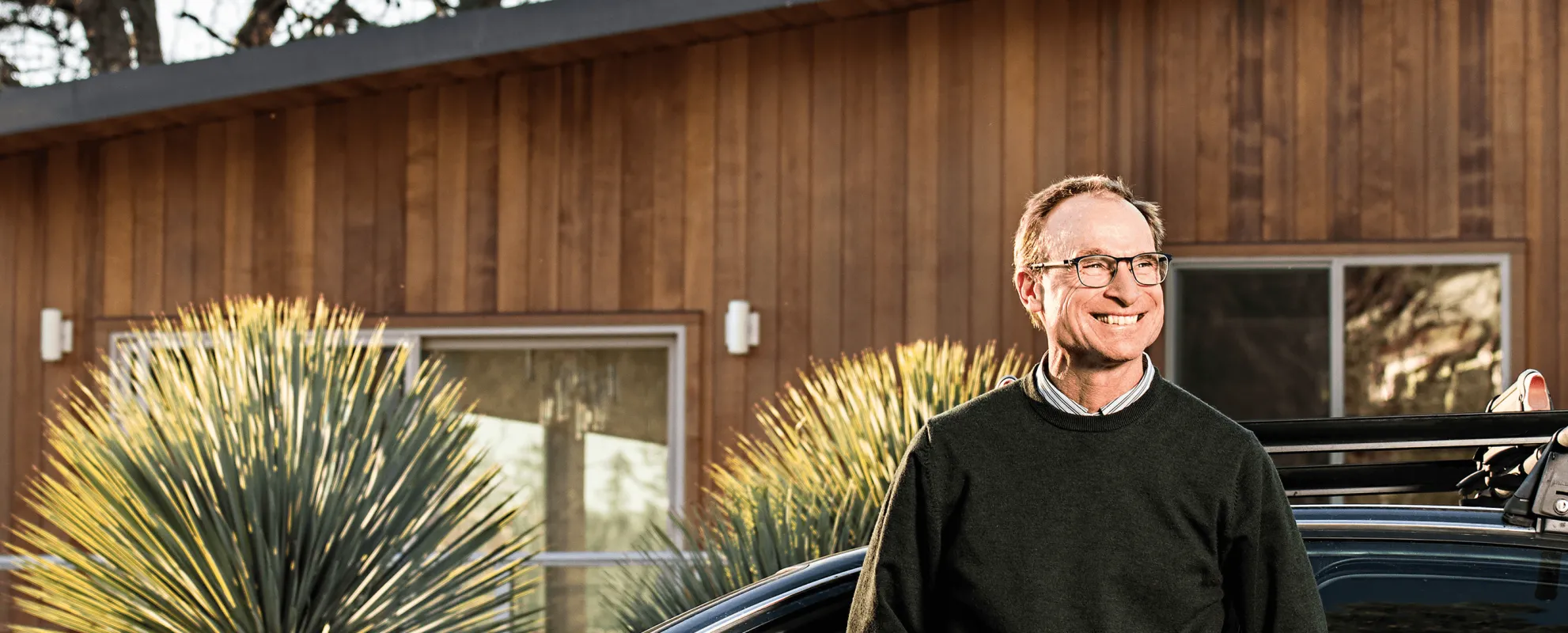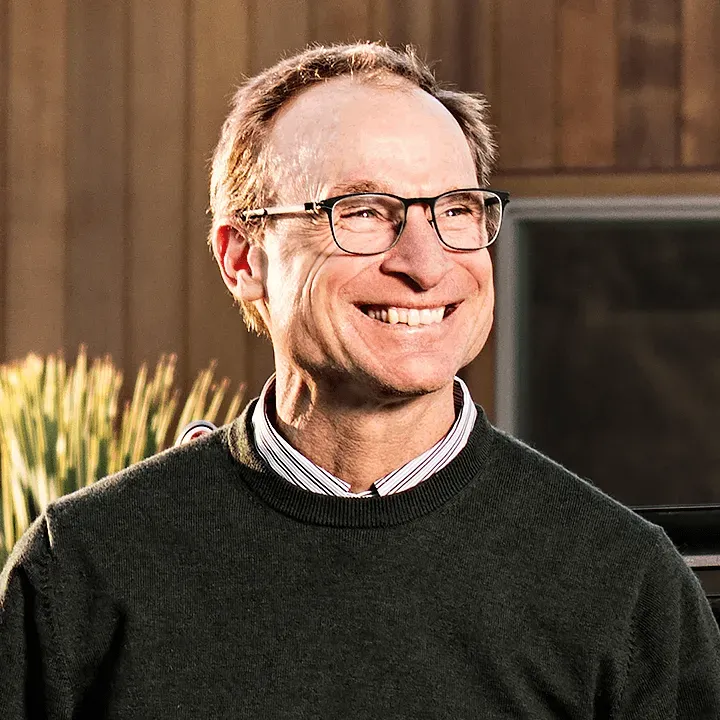Think back on your career. How much of a role did luck play into where you are today? It’s probably not easy to say one way or another, but that doesn’t stop labor economist Paul Oyer from wanting to study it.
“You hear these stories all the time,” Oyer says. “You run into the right person in the elevator. You happen to sit next to the right person at a dinner and that changes your whole future. I love these types of stories. They’re harder to analyze than the overall broader macroeconomic trends that affect people, but the truth is a few breaks can really affect a career.”
Throughout his career, Oyer has explored issues ranging from why companies offer their employees stock options to what makes certain types of workers particularly productive in different jobs. He also studies the risks and rewards of big career moves like earning an MBA or pursuing a PhD, and the significant role that luck can play in building a career — including his own.
Oyer recently spoke with Stanford Business about his experience moving from industry to academia, how the field has changed in recent years, and how being in the right place at the right time can make all the difference.
What Drew Him Into His Field
Oyer started his career with a couple of years at the consulting firm Booz Allen Hamilton. After receiving an MBA from Yale in 1989, he worked for now defunct high-tech companies 3Com Corporation and ASK Computer Systems. Then he went back to get his PhD in economics from Princeton. “I was doing regular MBA-like things in operations and marketing, and it was going OK,” he says. “But I think I was more interested in numbers and analytics than managing people or broader business matters.”
Ask economists to look back at the essay they wrote to get into graduate school, Oyer says, and the vast majority will tell you that they didn’t end up studying anything close to what they initially said they were interested in. But not him. “I’m pretty sure I wrote an essay in which I said I was going to do exactly what I ended up doing, which is studying how firms manage their employees and that sort of thing,” he says. “I just thought it was inherently interesting.”
Still, Oyer admits that he didn’t exactly know what he was getting into at the time. “I don’t think I knew what the life of an academic would be like,” he says. “It’s risky to get a PhD in the sense that you don’t know what’s going to happen on the other end. You can end up in a government office or a consulting firm instead of a university. Those are all very different jobs. But it was a great change, and I’m grateful how it worked out.”
On What Could Be His Most Impactful Research
One central question that Oyer studies in a number of contexts is what is the role of luck in a career.
For instance, in a 2008 paper published in the Journal of Finance, he analyzed MBA graduates and found that the state of the stock market when they graduated played a significant role in their subsequent career trajectories. When the stock market is doing well, investment banks recruit more aggressively and MBA students are much more interested in career opportunities in finance. As a result, Oyer found, an MBA who graduates during a bull market is much more likely to go into investment banking than one who graduates in a bear market. In addition, career paths are “sticky,” so someone who starts out as an investment banker is much more likely to be an investment banker later in his or her career, relative to someone who, say, starts out in consulting but later considers moving into investment banking.
In other words, Oyer’s findings suggest that it’s not just that people who like banking go into it and stay in it throughout their careers. Rather, investment bankers are often “made” by the conditions they encounter upon graduating. “That first step you take out of school ends up having long-term ramifications for where you end up working later in life,” Oyer says. “That initial draw in the labor market matters a lot.”
Oyer’s research showed a similar luck-of-the-draw finding for PhD economists on the academic job market. In a year when state budgets are in good shape and university endowments are up, schools do more hiring and a newly minted economist is much more likely to land a job at a higher-ranked university. And that initial job match has dramatic implications for the rest of the economist’s career, Oyer says, as he or she is more likely to publish more and stay at a top-ranked university.
“Every highly successful person had to do a lot of work to get where they are,” Oyer says. “But somewhere along the line they probably got a few good breaks. I think that’s a very important thing to remember, both to keep people who are very successful humble but also to encourage those who haven’t been successful yet to just keep looking for that break.”
Oyer even credits where he is now to such a break. “I used to work at the Kellogg School of Management. But, just because of the table I happened to sit at at a conference, I met somebody here at Stanford. They were looking for somebody kind of like me, but hadn’t really thought about me. The next thing I knew we were moving to California.”
His Best (And Most Embarrassing) Moments as a Teacher
The most rewarding moments in the classroom, Oyer says, are often not the most dramatic. Rather, they come from nudging a student to dig just a little deeper. He teaches a core economics course to MBAs, and says even though they don’t always want to get into the details of economics, there are moments when he can see the light bulb flick on. “A student will connect with an idea and realize that there’s some implication they can use, something that will be important, whether it’s realizing why prices are set a certain way or why companies follow one strategy or another. Those sorts of ‘Aha!’ moments that come out of slightly deeper economic analysis than you might do in day-to-day business are the best teaching moments for me.”
And the most embarrassing? It came after teaching two back-to-back hour-and-45-minute sections of a class. “I noticed that I had the little fluorescent band around my ankle that holds your suit pants from getting into your bike chain,” Oyer laughs. “That was a low point. To this day I’m bitter that nobody in those classes told until I was done with three hours of teaching.”
How the Field of Economics Is Shifting
Oyer says that the field of economics has changed in several major ways in the two decades since he got his PhD. “We do all sorts of things you couldn’t do back then based on big data sets and computing power,” Oyer says. In particular, he says, the field of labor economics has been dramatically changed by large government data sets matching statistics between employers and employees. “This has come a long way in the United States, but it’s even more true in Scandinavian countries,” Oyer says. He’s currently working on a paper that tracks a number of detailed metrics for every Norwegian entrepreneur over a 10-year period, from IQ to what their parents did for a living. “That’s pretty exciting, the fact that we have a lot better data than we used to have, and we have a lot better capacity to use it.”
Another of the most consequential changes for his own research, Oyer says, is that individual companies, especially tech-oriented ones, have become much more willing to share data for research purposes. “Maybe they have a bit of an agenda to show the world that they’re doing good and they want economists to help them prove that point,” Oyer says. “But also I think there’s an appreciation that what economists and other academics are doing has value, especially in very data-rich environments, and can help them learn things about their businesses that they didn’t know.”
Photos by Tricia Seibold


